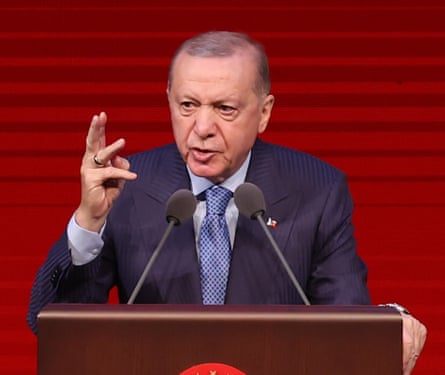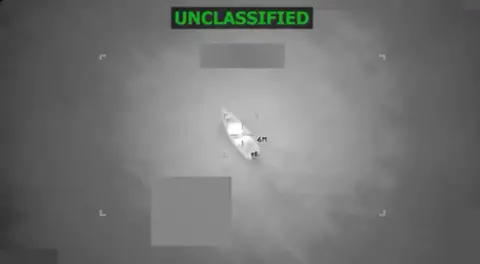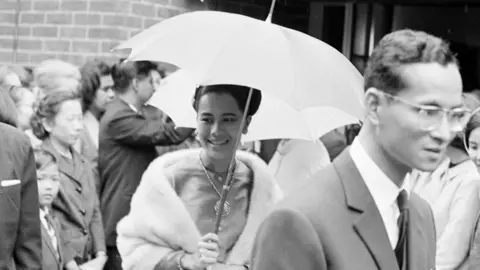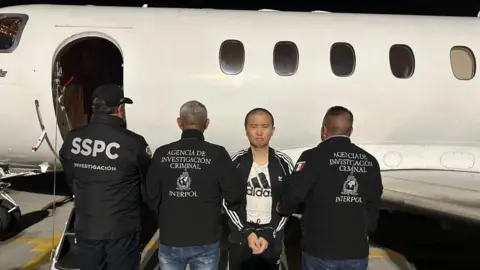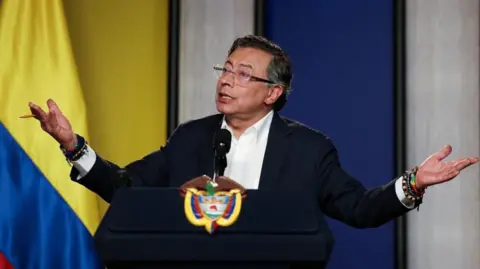Turkey likely to be excluded from Gaza stabilisation force after Israeli objection
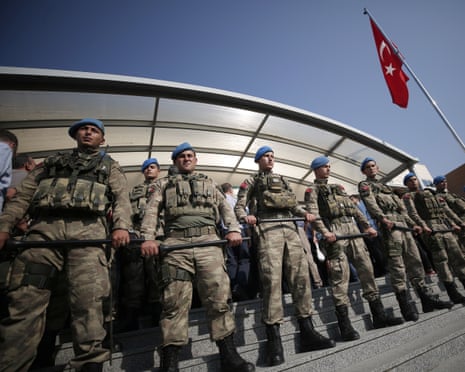
Turkey will probably be excluded from the 5,000-strong stabilisation force that is to be set up inside Gaza after Israel made clear it did not want Turkish troops taking part.
Marco Rubio, the US secretary of state, said it was a requirement that Israel is comfortable with the nationality of the multinational force, set up to prevent a security vacuum when the massive task of reconstruction in Gaza starts. Turkey has said it is willing to offer troops, but Israel has let it be known that it disapproves of Turkish troops taking part in the force.
Tensions between Israel and Turkey have grown over Syria and the Turkish president Recep Tayyip Erdoğan is seen by the Israeli government as too close to the Muslim Brotherhood and to Hamas itself. But the exclusion of Turkey from the stabilisation force would be controversial since it is one of the guarantors of the Trump 20-point ceasefire agreement, and is seen as one of the most capable Muslim armed forces.
The force is still likely to be led by Egypt.
Other contributors to the stabilisation force, such as Indonesia and the Emiratis, would still prefer the force to be given a UN security council mandate, even if it is not itself a UN peacekeeping force.
Instead it will coordinate with a US-led military cell, known as the Civil-Military Coordination Centre (CMCC), based in the southern Israeli town of Kiryat Gat. The cell, which includes a small number of British, French, Jordanian and Emirati advisers was inaugurated on Tuesday by the US vice-president, JD Vance. The CMCC also appears to be taking on an aid coordination role in Gaza, although key aid crossings remain closed.
The force will be tasked with disarming Hamas and securing a transitional Palestinian government, the formation of which is still being contested. The Israeli prime minister, Benjamin Netanyahu, has ruled out Palestinian Authority involvement in postwar Gaza, although on Friday the main Palestinian factions agreed that an independent committee of technocrats would take over the running of the strip.
In a sign of the tensions between Turkey and Israel, Turkish disaster response specialists sent to help locate Palestinian and Israeli bodies inside Gaza remained near Egypt’s border with the strip on Thursday, awaiting Israeli authorisation to enter.
The 81-member team from Turkey’s AFAD disaster management authority are waiting to enter with life-detection devices and trained search dogs.
Erdoğan told reporters on Friday that the US should do more to put pressure on Israel, including through sanctions and arms sales bans, to abide by its commitments in the Trump plan.
Rubio also said there could be no role for the UN’s Palestinian relief works agency, Unrwa, in Gaza due to the agency being a “subsidiary of Hamas”.
His remarks will put him at odds with many European countries, the UN itself, and the international court of justice (ICJ), which said in an advisory opinion this week that the Unrwa was an irreplaceable vehicle to distribute aid inside Gaza.
The ICJ did not accept that Israel had provided incontrovertible evidence that Unrwa had been irretrievably infiltrated by Hamas.
Joint US-Israeli opposition to Unrwa presents a dilemma since Donald Trump, in his 20-point plan, has accepted a role for the UN in distributing aid in Gaza, but seems intent on excluding Unrwa, the main relevant aid agency. The UN faces a choice over whether or not to confront Trump over Unrwa.
Norway, the country that initiated the action at the UN general assembly last December that led to the ICJ opinion this week, had said it was drafting a resolution incorporating the key ICJ findings about the need for Israel as the occupying power not to restrict aid supplies into Gaza. Under the Trump ceasefire plan, accepted by Israel, 600 aid trucks were due to enter Gaza daily. But since the agreement, the daily average has been 89 trucks a day on average – only 14% of the agreed amount.
Unrwa criticised Israel, saying: “Since the start of the war in Gaza, the West Bank, occupied by Israel since 1967, including East Jerusalem, has also seen a sharp escalation of violence.
“Families know only fear and uncertainty. The growing annexation of the West Bank continues unabated, in flagrant violation of international law. This must stop. The future of Gaza and the West Bank are one.”
The head of the UN humanitarian agency OCHA, Tom Fletcher, speaking to the BBC, said of his recent visit to Gaza: “It felt to me like I was driving through the ruins of Hiroshima, or Stalingrad, or Dresden”.
Delegations from Hamas led by Khalil al-Hayya, and its rival, Fatah, led by Hussein Al-Sheikh, met in Egypt on Friday to discuss post-war arrangements in the Gaza Strip.
Hamas said it had received “clear guarantees” from mediators that “the war has effectively ended”.
A joint statement published on the Hamas website said the groups had agreed during a meeting in Cairo to hand “over the administration of the Gaza Strip to a temporary Palestinian committee composed of independent ‘technocrats’, which will manage the affairs of life and basic services in cooperation with Arab brothers and international institutions”.
